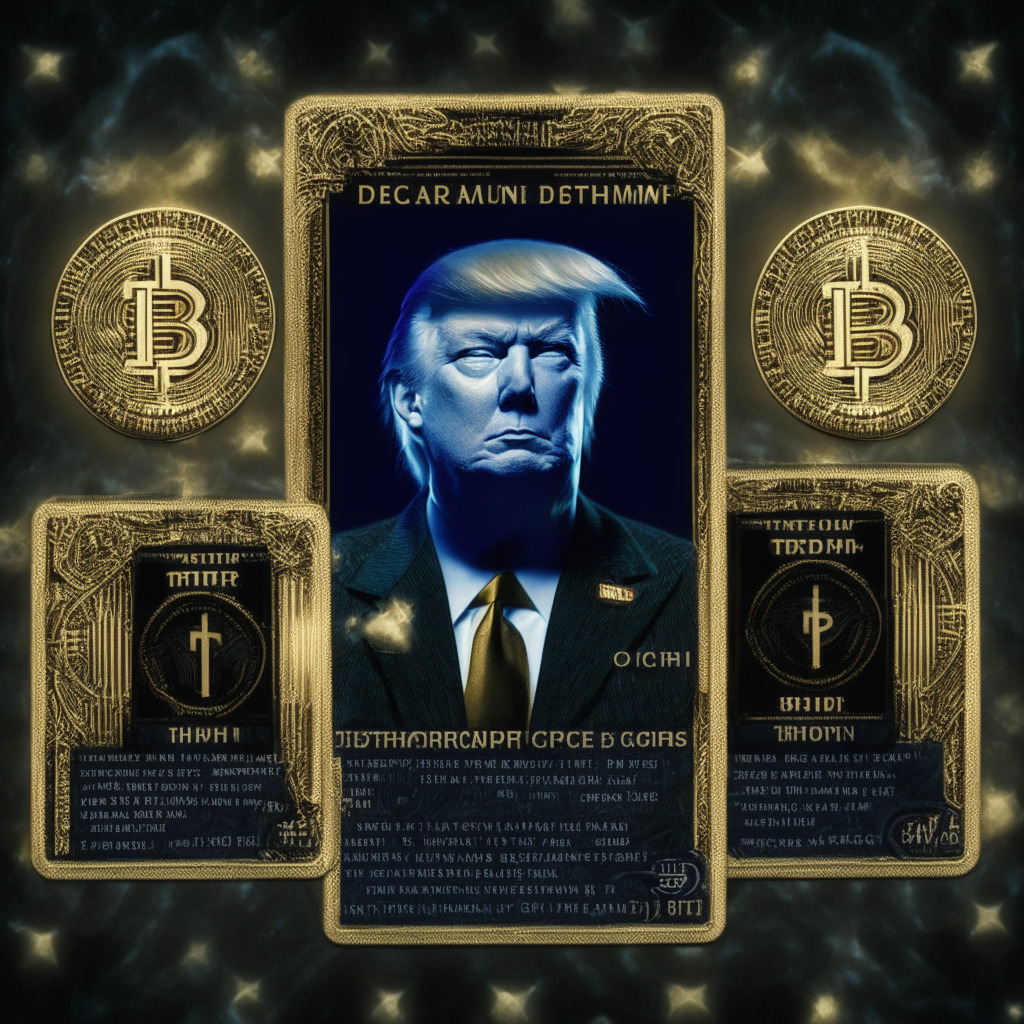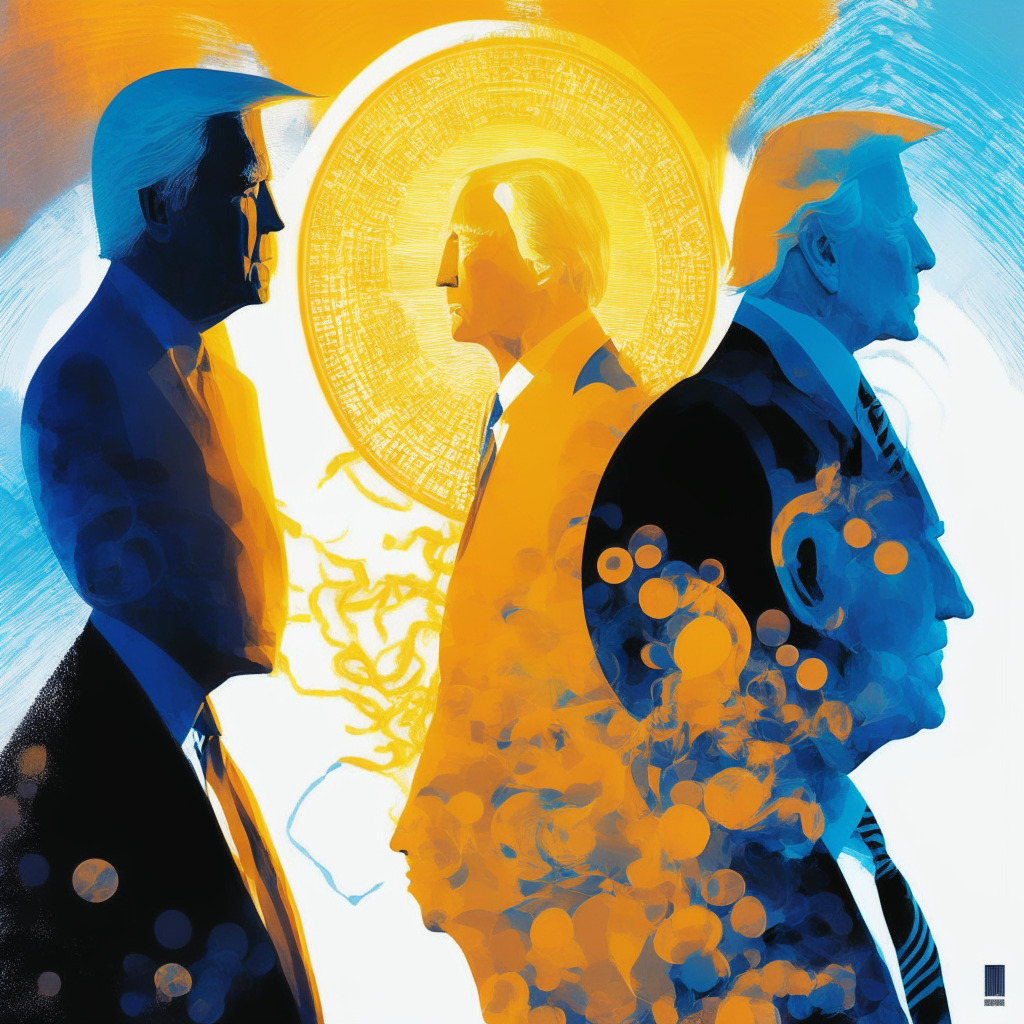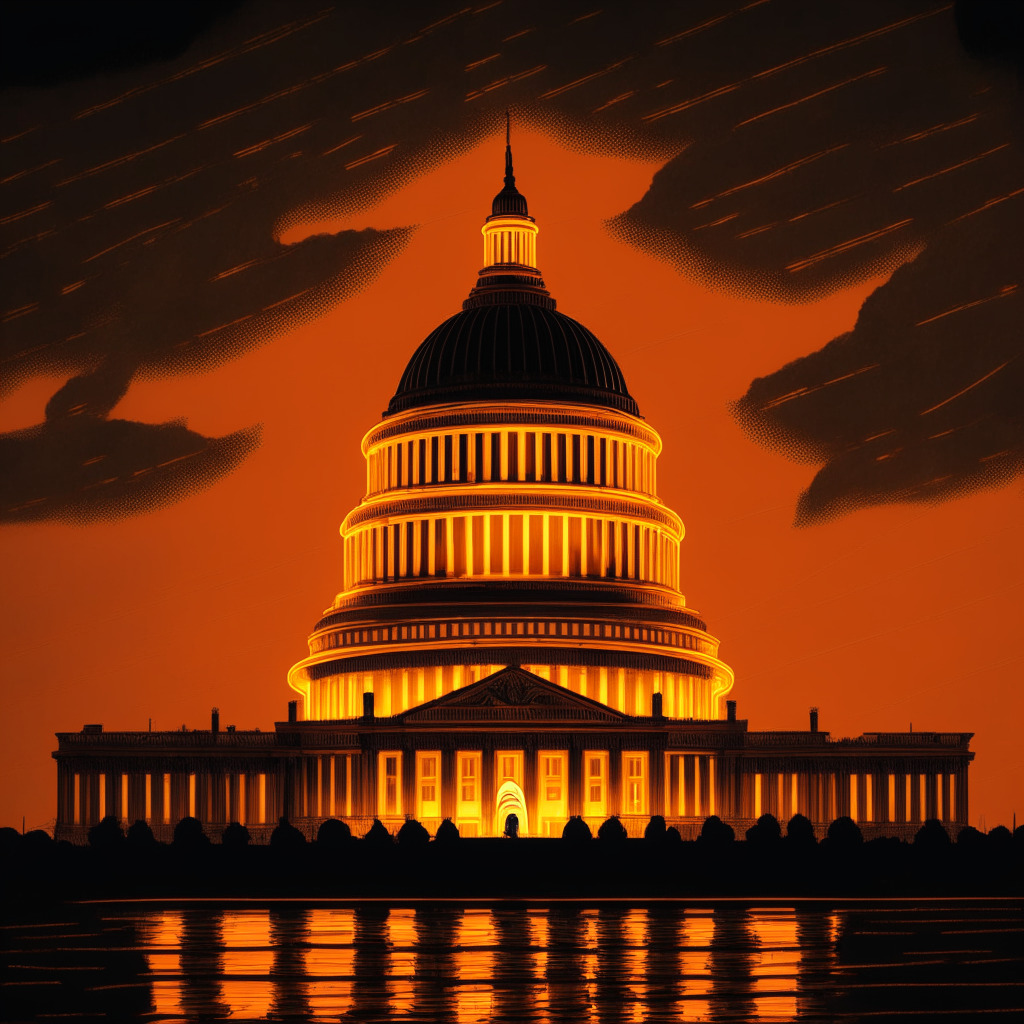An illicit cryptocurrency miner in Russia’s Far East allegedly stole $225,000 in electricity, causing major harm to a local grid. Such unauthorized access for mining is harmful to power networks, leading to heavy penalties. This incident underscores the increasing issue in the crypto mining space of unauthorized electricity consumption by illicit miners, posing threats to energy grids and overall security.
Search Results for: Republic Crypto
Frozen Assets in Cryptospace: A Dance between Innovation and Regulation
The US court has frozen former Celsius CEO, Alex Mashinsky’s assets amidst ongoing charges against him. This highlights increasing regulatory scrutiny in the crypto industry, raising concerns of stifling technological advancement while stressing accountability and consumer protection. The growing tension between innovation and regulation could potentially impact blockchain’s future.
Revising Crypto History: Runefelt’s Battle between Reality and Attraction Law
Crypto influencer Carl “The Moon” Runefelt, previously claimed to be a co-founder of cryptocurrency payment platform Kasta, but now insists that he was simply an investor. His sudden change of stance about his involvement and re-purported non-operational role, sparks questions about reliability in the volatile and fast-paced crypto industry.
The New ‘Crypto-politics’: Pros and Cons of Accepting Cryptocurrency Donations in Political Campaigns
“Florida’s Governor, Ron DeSantis, plans to announce the acceptance of crypto donations for his 2024 campaign, an interesting turn from traditional funding. However, cryptocurrency donations introduce complexity regarding traceability and potential misuse. The political landscape’s inherent unpredictability combined with cryptocurrency’s volatility invite intriguing consequences.”
SEC Delays Bitcoin ETF Decisions: Cautious Maneuvers or Hindrance to Crypto Progress?
The U.S. Securities and Exchange Commission (SEC) recently extended the review period for Bitcoin ETF applications from six companies by 45 days, stirring anticipation in the crypto community. This move typifies the SEC’s consistent, cautious approach to digital assets, often resulting in procedural delays.
Grayscale Court Victory: A Landmark for US Crypto Industry or SEC Overreach?
Republican Presidential candidate Vivek Ramaswamy perceives Grayscale Investments’ recent courtroom victory over the SEC as a critical defense for blockchain and Bitcoin innovation in the U.S. He plans to rollback federal regulations that hinder the growth of crypto markets if they don’t meet Supreme Court tests, while criticizing the contentious approach of regulation by enforcement preferred by the SEC.
Ramaswamy’s Support and Regulatory Challenges: Unraveling the Future of Cryptocurrency in the US
“U.S. Presidential candidate Vivek Ramaswamy praised Grayscale’s victory over the federal securities regulator, asserting it could further Bitcoin and blockchain innovation. However, the legal landscape for cryptocurrency regulation remains complex and uncertain, despite support from industry influencers and active discussions for clear regulations.”
SEC’s Crypto Regulation Approach: A Stepping Stone or Stumbling Block?
Gary Gensler, the SEC Chairman, is facing criticism from lawmakers for his aggressive stance on crypto regulation lacking transparency. The SEC’s focus on enforcement and penalties, absent clear guidelines on crypto assets within its jurisdiction, has come under scrutiny. Furthermore, differing views on regulatory approach, particularly regarding potential links between Prometheum and Chinese entities, have led to questioning of the SEC’s approval procedures. As Gensler prepares to return to Capitol Hill, debates on cryptocurrency policy will intensify, with calls for a cohesive, clear, routine for regulating this sector.
Binance Expands Crypto-to-Bank Services in Latin America: Opportunities and Challenges
Binance is expanding its reach in Latin America offering a crypto-to-bank account payment scheme, named ‘Send Cash’. This allows users from nine Latin American countries to transfer crypto funds directly into bank accounts, leveraging Binance’s native crypto payment technology platform, Binance Pay. Binance’s initiative aims to overcome challenges linked to the financial exclusion in Latin America.
Miami’s Blockchain Mayor Bows Out: What Suarez’s Presidential Campaign Suspension Means for Cryptocurrency Future
“Suarez, Miami’s Mayor, known for his bitcoin-friendly stance, accepted bitcoin as campaign donation and has explored the use of blockchain technology. Despite facing challenges, his pursuit of these technologies prompts discussion on the role of digital currencies in future political campaigns and public administration.”
Shackles or Safeguards? Federal Reserve’s Crypto Oversight Fuels Global Expansion
The Federal Reserve’s intensified scrutiny of banks’ cryptocurrency activities has sparked criticism from Republican lawmakers who argue this deters institutions from participating in the digital asset landscape. The Fed’s new requirements may potentially suppress the progress of decentralized finance. Amidst this, U.S. regulations on digital assets remain unclear, pushing some crypto companies to explore alternative markets overseas. The discourse focuses on balancing effective supervision with fostering blockchain innovation.
Crypto Regulation: Candidates’ Stances and Upcoming Election Implications
“Crypto regulation has become a significant issue in U.S. presidential campaigning. Candidates’ positions vary widely, from skepticism to enthusiastic adoption, yet the subject of digital assets regulation was absent from the recent Republican debate. This highlights the increasing importance of cryptocurrencies in our socio-political landscape, and suggests a need for informed legislation.”
A Rollercoaster Crypto Week: Triumphs, Tribulations, and the Quest for Unchartered Territories
“In a dynamic crypto week marked by revenue surges, privacy breaches, and promising tech advancements, we also see virtual activism in Metaverse, innovative crypto-related services, and increasing institutional embrace of digital assets. However, challenges persist with regulatory complexities and cyber threats.”
Central African Republic on Track to Tokenize Land: A Blockchain Leap or Misstep?
The Central African Republic is making waves in the crypto world by tokenizing its land and resources on the Sango blockchain platform. This innovative approach includes the use of technology for citizenship acquisition, land ownership, and diverse investments, thus enticing potential investors and promoting a “new era of financial empowerment through blockchain technology”.
Blockchain and Cryptocurrencies: A Rising Force in West Africa Amid Economic Dissatisfaction and Potential Pitfalls
“Blockchain technology, particularly Bitcoin, is gaining traction in West Africa, thanks to education efforts and dissatisfaction with regional monetary policies. However, the journey towards adoption is filled with opportunities and potential pitfalls, emphasizing the need for careful navigation and robust education.”
Crypto Politics: A Game-Changer in the 2024 US Elections Pros and Cons
“Crypto is becoming a vital topic in the US electoral campaign, with notable enthusiasts Governor Ron DeSantis and Vivek Ramaswamy promoting a future centered on digital currencies. Both forecast a future where digital assets disrupt traditional finances, shaping blockchain’s future.”
Central African Republic’s Groundbreaking Move: Tokenizing Land and Natural Resources
The Central African Republic (CAR) is advancing its Sango project with the aim of tokenizing land and natural resources. This could simplify procedures like online business visa applications and business establishment. It bears the potential to quicken licensing in sectors such as real estate, agriculture, and natural resource exploitation. However, concerns persist over potential unregulated exploitation and the stability of state-sponsored cryptocurrencies.
The Digital Canvas Mourns While Crypto Regulation Tightens: A Week in Blockchain Review
“Cheems, the Shiba Inu who inspired countless memes and an NFT collection, sadly passed away. Governmental involvement in crypto continues, with Kenya probing Worldcoin and Somalia banning crypto-friendly messaging app Telegram. Individual Bitcoin miner successfully mined block 803,821, revealing competitiveness against mining pools.”
SEC’s Anticipated Approval of Ether Futures ETFs: A Leap or a Stumble for Crypto?
The SEC’s expected approval of multiple Ether futures ETFs signals a significant shift in crypto regulation. However, with the potential risk posed to individual investors by crypto volatility, the outcome remains uncertain. The decision sets the stage for an exciting and transformative year for the crypto industry amidst intense discussions about the impact on the sector and investors.
Presidential Hopeful Vivek Ramaswamy Banks on Crypto: Innovating Campaign Funding or Legal Liability?
“Up-and-coming US Republican presidential candidate, Vivek Ramaswamy, known for his pro-crypto stance, is accepting Bitcoin contributions for his campaign, reflecting the increasing influence of digital currencies in the financial landscape. However, his political journey faces potential setbacks due to legal issues with previous employees.”
Secret Cryptography: Trump’s Hidden Digital Assets Stir Presidential Crypto Debates
Former US President Donald Trump reportedly holds $2.8 million in a digital wallet, a larger sum than previously disclosed. Trump’s venture into the crypto domain began with his NFT endeavor, Trump Digital Collectible Cards. The discovery shows his deepened involvement in cryptocurrency. Meanwhile, other presidential candidates voice their crypto policies, underlining the rising influence of cryptocurrencies on the political stage.
Bipartisan Crypto Support: Accelerating Adoption or Facing Opposition?
“Cryptocurrency finds itself adopted by parties on both sides of Washington’s political divide, evolving from being a niche technology to a politically intriguing topic. Coincidentally, support seems almost equal, with 26 Republicans and 22 Democrats in the House, and 24 Republicans and 11 Democrats in the Senate advocating for crypto. Criticism exists too, demanding more transparency and protection of traditional institutions.”
Former President Trump’s Surprising Foray into Cryptocurrency and NFTs: A Paradigm Shift or Sheer Opportunism?
“Former US President Donald Trump reportedly owns digital assets worth between $250,000 and $500,000, largely boosted by sales from his NFT trading cards. This comes despite previous comments disparaging cryptocurrencies. Trump’s decision amidst divisive views on digital assets could potentially influence the upcoming White House bid for 2024.”
Shifting Political Winds: Potential Impact on US Crypto Regulatory Landscape Post 2024 Election
Recent comments from former SEC official John Reed Stark suggest potential changes to U.S. crypto regulation influenced by party politics. Stark attributes a pro-crypto regulation shift to a possible Republican win in 2024, ending current SEC chair Gensler’s tenure, and potentially paving the way for Hester Peirce, known for her softer stance on crypto.
Navigating the Roadblocks for Mainstream Cryptocurrency Adoption: An In-depth Analysis
“Cryptocurrency’s trajectory to mainstream adoption is hindered by significant challenges such as education gaps, regulatory issues, blockchain interoperability, infrastructure needs, and security concerns. Notwithstanding these, ongoing collaboration between developers, businesses, institutions, and governments fosters cautious optimism about crypto’s mainstream integration.”
The SEC’s Crypto Crackdown: Necessary Oversight or Innovation Barrier?
“Bittrex agreed to a $24 million settlement following SEC allegations of operating as an unregistered securities exchange, part of an acceleration of SEC’s enforcement on disruptive crypto firms. The aggressive regulation is critiqued for thwarting investment and innovation, pushing the industry to more amiable jurisdictions like UAE or UK.”
Venture Capital Giants Faced with Lawsuit over Crypto Exchange Scandal: Unmasking their Role
“In a class-action lawsuit, 18 top venture capital firms, including Temasek, Sequoia Capital, Sino Global and Softbank are accused of endorsing the apparently bankrupt crypto exchange, FTX. The plaintiffs argue they portrayed a deceptive picture of safety and stability about the exchange, despite concerns of fraudulent activities and negligence of securities laws.”
The Great Swindle: FTX’s Co-CEO’s Guilty Plea and Its Fallout on Crypto Transparency
Former co-CEO of FTX Digital Markets, Ryan Salame, is expected to plead guilty to suspected violations of U.S. campaign finance laws linked with illicit activities within the cryptocurrency firm. Sam Bankman-Fried, FTX founder, maintains his not guilty plea against charges including multi-billion dollar fraud. This underscores the urgent need for transparency in financial cyberspace.
FTX Digital Markets Scandal: The Tightrope of Crypto Regulations & Need for Decentralization
“FTX Digital Markets’ co-director, Ryan Salame, is negotiating a potential guilty plea regarding criminal charges stemming from the downfall of the cryptocurrency exchange. Salame is accused of violating campaign finance laws, posing questions about the future of blockchain technology and the need for stringent regulations within the platform.”
XRP’s Decline Reflects Crypto Market Instability Amid Legal Disputes and New Partnerships
“XRP price dropped by 3.4% in a quiet crypto market, hinging on Ripple’s legal tussle with the SEC and fluctuating technical indicators. Despite potential losses, partnerships and stablecoin trials give XRP recovery chances. Ethereum-based XRP20, offering income opportunities, might engage XRP-awaiting traders.”
2024 U.S. Presidency & Crypto: Favouring Central Bank Digital Currencies or Upholding Bitcoin?
“According to Grayscale, presidential candidates Joe Biden and Donald Trump might support the development of central bank digital currency (CBDC), despite their unclear stance on Bitcoin. Other candidates have expressed both support for cryptocurrencies and opposition to CBDCs. Amidst this, regulatory uncertainty tests the resilience of crypto firms and generates various views about the future of cryptocurrencies.”
Closing the $50 billion Crypto Tax Gap: Urgent Measures or Rushed Consequences?
Democratic Senators, including Elizabeth Warren and Bernie Sanders, urged the IRS and the Treasury Department to expedite new crypto tax regulations to close a potential “$50 billion crypto tax gap.” They expressed concerns about potential loss of $1.5 billion in government tax revenue for 2024 due to delay in the implementation. This is amid a wider conversation for more transparency in the bourgeoning cryptocurrency sector.































